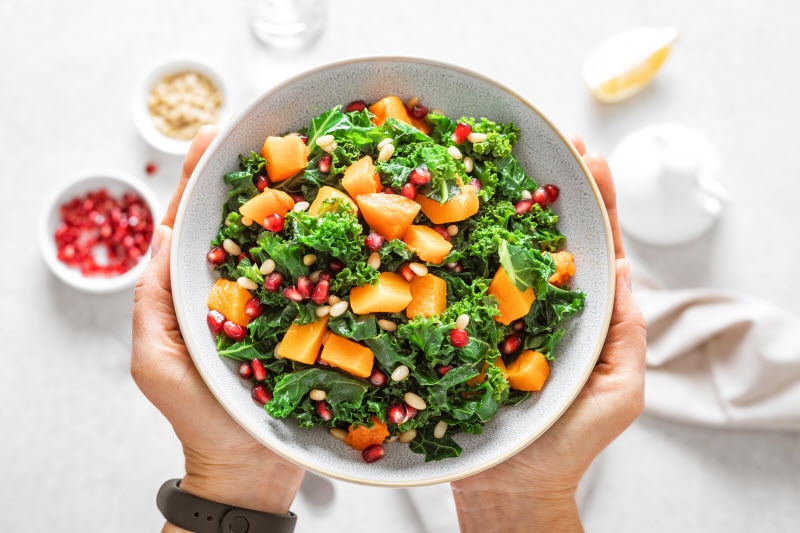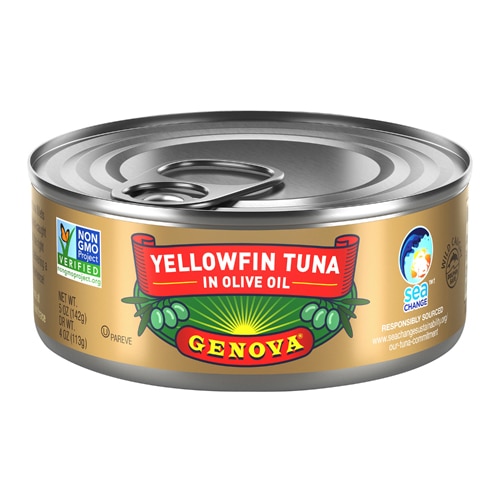[vc_row][vc_column][vc_column_text]
“Like all living species, humanity depends on nature for food and water, materials for survival, and safety from dire environmental threats, such as epidemics and natural catastrophes. Yet for a species that depends on the beneficence of nature, or on what the scientists call ‘environmental services,’ we are doing a poor job of protecting the physical basis of our very survival!”
~ Jeffrey D. Sachs, expert on sustainable development and director of the Earth Institute at Columbia University

You may be familiar with the term “sustainable eating,” but what does it really mean?
The Food and Agriculture Organization (FAO), a specialized agency of the United Nations that leads international efforts to defeat hunger globally, defines sustainable diets as those with low environmental impacts that contribute to food and nutrition security and to healthy life for present and future generations.
A sustainable approach to food is also protective and respectful of biodiversity and ecosystems, culturally acceptable, accessible, economically fair, affordable, nutritionally adequate, safe and healthy, while optimizing natural and human resources. It may sound like a tall order but eating “within our means” is rapidly becoming an imperative approach to a finite supply of resources. Sustainable eating is a responsible and ethical life stance and a powerful example to set. These tips can help.
How to Eat More Sustainably
Prioritize plants
Making plant-based foods a top menu priority is one of the most effective steps you can take to help ensure a safe future for all living things. In a
study entitled “Sustainability of plant-based diets: back to the future,” researchers note that plant-based diets are more sustainable than eating animals because they use far fewer natural resources and are less taxing on the environment.
They also state that given the current trends of food consumption and state of the environment, food security and food sustainability are on a collision course. Preventing a crash will require an extreme reduction in meat and dairy consumption by large segments of the world’s population. Is this feasible? Absolutely! In fact, for millennia, large segments of the world population have thrived on plant-based diets.
“Going back” to a plant-centric diet globally is one of the most rational and moral paths to a sustainable future for all living things. These tips can help ease your transition. Additionally, check out these
plant-based food staples and how to use them.
Phase out animal foods
Factory farms are among the top contributors of greenhouse gas emissions. According to
Clean Water, which has worked to protect the environment since its founding campaign to pass the landmark Clean Water Act in 1972, there are three major environmental problems associated with meat production:
Feed sourcing - Agriculture is the top source of worldwide deforestation (40%), and, among the top commodity-drivers of deforestation, beef production is responsible for 41% of all agriculture-linked tree loss, a rate
five times higher than for any other products, due to the conversion of forests into cattle pasture for grazing, which, by 2015, amounted to a land mass the size of Sweden.
Manure processing – One increasingly common tactic for handling animal waste is to spray it onto fields, often near impoverished communities. However, spraying liquid manure through an irrigation nozzle can also result in
humans being infected by the dangerous pathogens, leading to adverse health effects, such as acute gastrointestinal illness.
Climate change – A recent
study found that meat accounts for nearly 60% of all greenhouse gases from food production. Converting natural habitats to agricultural fields releases environmentally harmful carbon pollution, which is exacerbated by the fact that livestock emit methane during digestion, processing and transportation. Moreover, as animal manure decomposes, it releases yet more emissions, including methane, ammonia and carbon dioxide which further spike global warming.
Be a locavore
A locavore is, by definition, a person whose diet consists only or principally of locally grown or produced food. Operating this way enables you to dramatically reduce your
food carbon footprint. Becoming a habitué of your local farmer’s market gives you access to super fresh, healthy food by investing in your own community.
And, according to the
United Nations Environment Program (UNEP), local, sustainable agriculture uses up to 56% less energy, creates 64% fewer greenhouse gas emissions, and allows for greater levels of biodiversity than conventional farming.
Dine with the seasons
The practice of shipping food across the world comes at a price beyond a daunting carbon footprint, it also disconnects us from what we consume—how it is grown, and when it is harvested.
The Farm Project, a national organization that empowers initiatives to reconnect people with food, teaches that humans evolved consuming a wide variety of foods based on what was available, which typically meant lighter foods in the spring and summer, and heartier, comfort food in cooler months. Here are a few of the benefits of dining seasonally:
Local foods require fewer chemicals and pesticides – The use of harmful chemicals to secure out-of-season harvests is often standard procedure to meet the “cosmetic standards” set by traditional grocery stores.
Eating with the seasons is cheaper - When you buy food at the peak of its supply, there is more to pick from, which means prices are usually at their lowest. This relates to the simple concept of supply and demand; in-season produce is in large supply, so selling it more cheaply maintains demand.
A seasonal menu is planet-friendly – Eating this way also helps reduce planet-harming emissions, because the gas and oil required to transport food creates carbon dioxide, contributing to the greenhouse gases largely responsible for climate change. Short of growing your own food, buying local is the best way to eat with the seasons.
Eat mindfully
Cultivating your awareness is a key aspect of sustainable,
intuitive eating, as it allows you to be fully present and to reflect on the origins of your food. Dining mindfully also protects you from overeating because you will be more tuned into your natural satiety point?when you are comfortably full. Understanding when, how and
why we eat can help us make healthier, more sustainable choices.
Other aspects of mindful eating include minimizing food waste and composting or otherwise consciously disposing of scraps, including
upcycling food. As author Mark Hyman, MD has noted, “
The sustainability of our planet, our health, and our food supply are inextricably linked. The ecology of eating?the importance of what you put on your fork?has never been more critical to our survival as a nation or as a species. The earth will survive our self-destruction, but we may not.”
Imagine the global impact if the majority of humans were to rethink their eating patterns along healthier, more sustainable lines. Oh, what a world it could be![/vc_column_text][/vc_column][/vc_row][vc_row][vc_column][vc_text_separator title="Featured Products" border_width="2"][vc_row_inner equal_height="yes" content_placement="middle" gap="35"][vc_column_inner width="1/3"][vc_single_image image="164245" img_size="full" alignment="center" onclick="custom_link" img_link_target="_blank" css=".vc_custom_1673035161829{padding-right: 7% !important;padding-left: 7% !important;}" link="https://www.vitacost.com/renewal-mill-upcycled-oat-chocolate-chip-cookie-mix"][/vc_column_inner][vc_column_inner width="1/3"][vc_single_image image="164246" img_size="full" alignment="center" onclick="custom_link" img_link_target="_blank" css=".vc_custom_1673035178258{padding-right: 7% !important;padding-left: 7% !important;}" link="https://www.vitacost.com/plant-boss-organic-all-purpose-plant-crumbles"][/vc_column_inner][vc_column_inner width="1/3"][vc_single_image image="164244" img_size="full" alignment="center" onclick="custom_link" img_link_target="_blank" css=".vc_custom_1673035256090{padding-right: 7% !important;padding-left: 7% !important;}" link="https://www.vitacost.com/oceans-halo-vegan-fish-broth"][/vc_column_inner][/vc_row_inner][/vc_column][/vc_row]
 You may be familiar with the term “sustainable eating,” but what does it really mean? The Food and Agriculture Organization (FAO), a specialized agency of the United Nations that leads international efforts to defeat hunger globally, defines sustainable diets as those with low environmental impacts that contribute to food and nutrition security and to healthy life for present and future generations.
A sustainable approach to food is also protective and respectful of biodiversity and ecosystems, culturally acceptable, accessible, economically fair, affordable, nutritionally adequate, safe and healthy, while optimizing natural and human resources. It may sound like a tall order but eating “within our means” is rapidly becoming an imperative approach to a finite supply of resources. Sustainable eating is a responsible and ethical life stance and a powerful example to set. These tips can help.
You may be familiar with the term “sustainable eating,” but what does it really mean? The Food and Agriculture Organization (FAO), a specialized agency of the United Nations that leads international efforts to defeat hunger globally, defines sustainable diets as those with low environmental impacts that contribute to food and nutrition security and to healthy life for present and future generations.
A sustainable approach to food is also protective and respectful of biodiversity and ecosystems, culturally acceptable, accessible, economically fair, affordable, nutritionally adequate, safe and healthy, while optimizing natural and human resources. It may sound like a tall order but eating “within our means” is rapidly becoming an imperative approach to a finite supply of resources. Sustainable eating is a responsible and ethical life stance and a powerful example to set. These tips can help.



